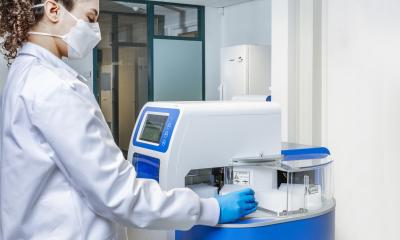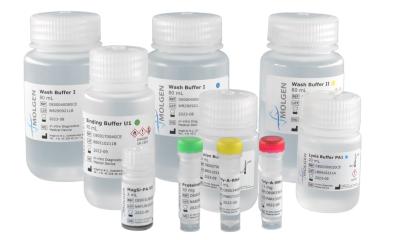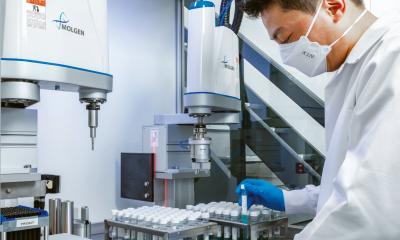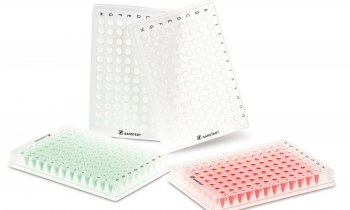Image source: Shutterstock/ktsdesign
News • COVID-19 status
Whole genome sequencing to map coronavirus spread
The Government and the UK’s Chief Scientific Adviser have backed the UK’s leading clinicians and scientists to map how COVID-19 spreads and behaves by using whole genome sequencing.
Through a £20 million investment, the consortium will look for breakthroughs that help the UK respond to this and future pandemics, and save lives. COVID-19 Genomics UK Consortium - comprised of the NHS, Public Health Agencies, Wellcome Sanger Institute, and numerous academic institutions - will deliver large scale, rapid sequencing of the cause of the disease and share intelligence with hospitals, regional NHS centres and the Government. Samples from patients with confirmed cases of COVID-19 will be sent to a network of sequencing centres which currently includes Belfast, Birmingham, Cambridge, Cardiff, Edinburgh, Exeter, Glasgow, Liverpool, London, Norwich, Nottingham, Oxford and Sheffield.
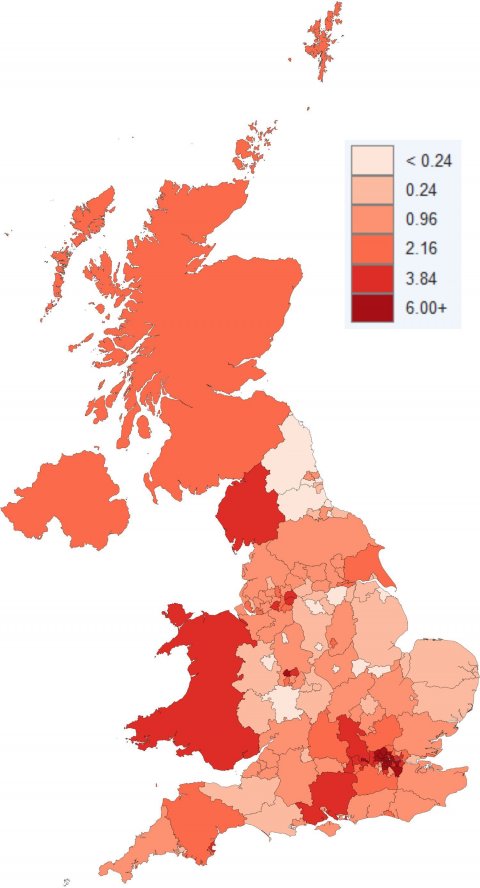
Image source: Ythlev, COVID-19 outbreak UK per capita cases map, CC BY-SA 4.0
The Wellcome Sanger Institute, one of the world’s most advanced centres of genomes and data, will collaborate with expert groups across the country to analyse the genetic code of COVID-19 samples circulating in the UK and in doing so, give public health agencies and clinicians a unique, cutting-edge tool to combat the virus.
By looking at the whole virus genome in people who have had confirmed cases of COVID-19, scientists can monitor changes in the virus at a national scale to understand how the virus is spreading and whether different strains are emerging. This will help clinical care of patients and save lives. Business Secretary Alok Sharma said: “At a critical moment in history, this new consortium will bring together the UK’s brightest and best scientists to build our understanding of this pandemic, tackle the disease and ultimately, save lives. As a Government we are working tirelessly to do all we can to fight COVID-19 to protect as many lives and save as many jobs as possible.”
Government Chief Scientific Adviser, Sir Patrick Vallance said: “Genomic sequencing will help us understand COVID-19 and its spread. It can also help guide treatments in the future and see the impact of interventions. The UK is one of the world’s leading destinations for genomics research and development, and I am confident that our best minds, working as part of this consortium, will make vital breakthroughs to help us tackle this disease.”
The power of 21st century science to combat this pandemic is something that those going before us could not have dreamt of, and it is incumbent on us to do everything we can to first understand, and then limit, the impact of COVID-19
Sir Jeremy Farrar
The UK Consortium, supported by the Government, including the NHS, Public Health England, UK Research and Innovation (UKRI), and Wellcome, will enable clinicians and public health teams to rapidly investigate clusters of cases in hospitals, care homes and the community, to understand how the virus is spread and implement appropriate infection control measures. Professor Sharon Peacock, Director of the National Infection Service, Public Health England, said: “This virus is one of the biggest threats our nation has faced in recent times and crucial to helping us fight it is understanding how it is spreading. Harnessing innovative genome technologies will help us tease apart the complex picture of coronavirus spread in the UK, and rapidly evaluate ways to reduce the impact of this disease on our society.”
Professor Sir Mike Stratton, Director of the Wellcome Sanger Institute, said: “In response to the ongoing COVID-19 pandemic, the Sanger Institute will deploy its large-scale sequencing platform alongside regional sequencing centres to support UK Public Health Agencies, regional NHS centres and several Universities to better understand the coronavirus outbreak in the UK. Samples from substantial numbers of confirmed cases of COVID-19 will be whole genome sequenced and, employing the Sanger Institute’s expertise in genomics and surveillance of infectious diseases, our researchers will collaborate with other leading groups across the country to analyse the data generated and work out how coronavirus is spreading in the UK. This will inform national and international strategies to control the pandemic and prevent further spread.”
Recommended article
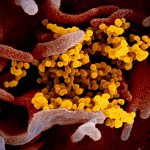
Video • Coronavirus in laboratory medicine
Video: COVID-19 at a glance
To provide reliable information about the coronavirus disease COVID-19, Professor Giuseppe Lippi, Director of the Laboratory for Clinical Chemistry and Hematology at the University Hospital of Verona, Italy, gives an overview on the current state of scientific knowledge on COVID-19 and the SARS-CoV-2 virus. The video was provided by the American Association for Clinical Chemistry (AACC), who…
Sir Jeremy Farrar, Director of Wellcome, said: “By bringing together public health expertise from Public Health England and genomic science from the Wellcome Sanger Institute the UK can crack the code of this virus, and we should give everyone involved huge credit for that. Rapid genome sequencing of COVID-19 will give us unparalleled insights into the spread, distribution and scale of the epidemic in the UK. The power of 21st century science to combat this pandemic is something that those going before us could not have dreamt of, and it is incumbent on us to do everything we can to first understand, and then limit, the impact of COVID-19.”
Professor Fiona Watt, Executive Chair of the Medical Research Council, part of UK Research and Innovation said: “The UK is a leader in cutting edge genome sequencing science. We are now applying specialist expertise in our fight to slow the spread of Coronavirus and accelerate treatments for those affected. The ambitious and coordinated response of our research community to the COVID-19 challenge is remarkable.”
This investment and the findings from the consortium will help prepare the UK and the world for future pandemics.
Source: United Kingdom Government
23.03.2020



